|
Published on 07 May 2024
From the vantage point of a Malaysian observer, the political landscape of our neighbour Singapore offers both a study in contrasts and a mirror to our own political experiences. Last month’s announcement by Prime Minister Lee Hsien Loong, detailing his plan to pass the leadership baton to Deputy Prime Minister Lawrence Wong on 15th May 15 2024, serves as a point of reflection. Singapore’s political succession is reminiscent of a well-orchestrated corporate handover rather than the tumult typically associated with democratic transitions. Since achieving independence, the seamless transition of power within the ruling People’s Action Party (PAP)—from Lee Kuan Yew to Goh Chok Tong, and then to Lee Hsien Loong—has been a hallmark of Singaporean governance. This system was starkly highlighted in April 2021 when the previously anointed successor, Heng Swee Keat, withdrew from the race, citing the heavy demands of leading in a post-pandemic era. The PAP’s uninterrupted rule over six decades is unparalleled among modern multiparty parliamentary democracies and has provided Singapore with both political stability and policy certainty. Many Singaporeans endorse this model, valuing the governance that has transformed their country into a global hub. However, this controlled transition process suggests a limited democratic engagement, which could be perceived as Singapore’s significant vulnerability. The most recent transition highlights an elite bargaining rather than a participatory democratic process. At the end of 2021, a consultative procedure led by retired minister Khaw Boon Wan involved 19 key stakeholders within the government and affiliated organisations, culminating in the selection of Lawrence Wong by a majority. This approach, while efficient and possibly suited to Singapore’s unique needs, poses questions about the breadth of democratic involvement. Particularly among younger Singaporeans, there is a burgeoning demand for greater political representation, as evidenced during the 2020 general elections. These voices are not seeking drastic changes in governance but are instead advocating for a more robust opposition to ensure a balanced democratic process. Winston Churchill’s words resonate deeply when considering Singapore’s context: “No one pretends that democracy is perfect or all-wise. Indeed, it has been said that democracy is the worst form of government except all those other forms that have been tried from time to time.” While Singapore has prospered under its current political model, enhancing democratic engagement could further legitimise and strengthen its governance framework. As Lawrence Wong steps forward to assume leadership, he faces the dual challenge of maintaining Singapore’s economic dynamism and evolving its political framework to reflect a more participatory democratic ethos. Observing from Malaysia, it becomes apparent that while our political paths diverge, the underlying currents of people’s aspirations for more inclusive governance are strikingly similar. The unfolding political narrative in Singapore may well set a precedent for both nations, underscoring the universal quest for a balance between stability and democratic vibrancy.
0 Comments
Published on 07 May 2024
In the quiet corner of my study, a book caught my eye—a relic from my undergraduate days titled “Political Ideologies: An Introduction” by Andrew Heywood. As I dusted off its cover, a wave of nostalgia swept over me. The book, which I had once pored over studiously, offered a comprehensive tour through the vibrant landscape of political thought—from liberalism and conservatism to socialism and beyond. Today, the essence of these ideologies seems lost in the cacophony of the Kuala Kubu Bharu by-election, which is currently dominating Malaysia’s news cycle. The contest pits the ruling coalition, Pakatan Harapan (PH), and Barisan Nasional (BN) against the opposition, Perikatan Nasional (PN). Yet, the discourse at political rallies has degenerated into a spectacle of insults and polemics, a far cry from the substantive debates one might hope for in a democratic society. It is often stated that politics ought to be a battleground of policies, not personalities—and rightly so. Policies, after all, are manifestations of underlying ideologies. Even politicians who champion pragmatism are guided by some ideological compass. For instance, in a revealing episode of the podcast Keluar Sekejap, Home Minister Saifuddin Nasution, who claims political flexibility, displayed conservative tendencies starkly contrasting with his party and PH peers. In the same podcast, Anthony Loke of the Democratic Action Party (DAP) discussed his party’s ideological shift from democratic socialism to social democracy, signifying a pivot towards centrism from its more radical origins. Ideology should not be seen as a pejorative but as a lens through which political motives and actions can be discerned. UMNO, for example, bases its appeal on Malay nationalism—emphasising race, religion, and nation—which has historically shaped policies like the New Economic Policy (NEP). Conversely, DAP has advocated for a vision of a “Malaysian Malaysia”—a more egalitarian Malaysian society, although its stance has moderated over time. The so-called “Green Wave” led by PAS under the Perikatan Nasional banner is a form of political Islam aimed at fostering an Islamic ethos in governance, stopping short of establishing an Islamic state. This approach to Islamism is not inherently problematic and is echoed by PAS’s rival, Parti Amanah Negara, which offers a progressive interpretation of Islamism, encapsulated in the concept of “Rahmatan Lil Alamin”—mercy for all. Government policies often mirror the ideological positions of their proponents. Progressive initiatives like the Progressive Wage Model and Inisiatif Pendapatan Rakyat (IPR) contrast with market-centric strategies such as the New Industrial Master Plan 2030 and the KL20 Action Plan. Although the government’s track record is mixed, the Opposition has notably struggled to articulate how its conservative Malay-Muslim ideology translates into viable policy propositions that would demonstrate its readiness to be the government-in-waiting. As I returned the book to its shelf, it struck me that political engagement need not be trivial or personality-driven. It should be a robust exchange of ideas and ideals. My own political beliefs—a hybrid of liberalism, conservatism, and socialism—suggest that many of us embody a spectrum of ideologies. It’s essential, then, that we as citizens engage earnestly with our ideological leanings. Let us advocate for a political arena where ideas triumph over insults, and ideologies provide the framework for meaningful policy discourse. My colleague Voon and I return with another interview series. This time, it's with the French Ambassador, H.E. Mr Roland Galharague!
Over the course of 40 minutes, we talked about:
If you prefer a podcast, you listen to it here. I was interviewed by Marc Lourdes, founder of Between The Lines (BTL), an independent online media platform in Malaysia. Marc asked difficult questions, but it was a blast articulating my thoughts on key challenges faced by young Malaysians. I argue the number 1 issue is youth unemployment -- it has always been and will be for the foreseeable future.
Check out the full interview here - and while you're at it, sign up for BTL! My KSI colleague Voon Zhen Yi and I have started a new interview series with ambassadors and high commissioners in Malaysia. We call it Diplomatically Speaking With.
For the first one, we had the German Ambassador to Malaysia - His Excellency Dr Peter Blomeyer! Over the course of 45 minutes, we had a wide-ranging discussion on:
If you prefer a podcast, you listen to it here. We've lined up a few ambassadors for Diplomatically Speaking With. Keep an eye out! Enjoy! Had a fun chat with Hezril Asyraaf of BFM Radio for their "Good Things" segment. Check out the podcast at https://www.bfm.my/.../good-things-12-young-people-arise.
A wide-ranging of topics on youth development, community-building and civic empowerment. Walked back memory lane during early days in university and establishing Perdana Fellows Alumni Association and Nation Building School for youth empowerment. Also talked about more recent initiatives Malaysian Youth Diplomacy - MyDiplomacy and my current project #DesignYourCareer. I realised I talked too fast but hopefully, it makes sense! Thanks for recommending, Siti Aishah! 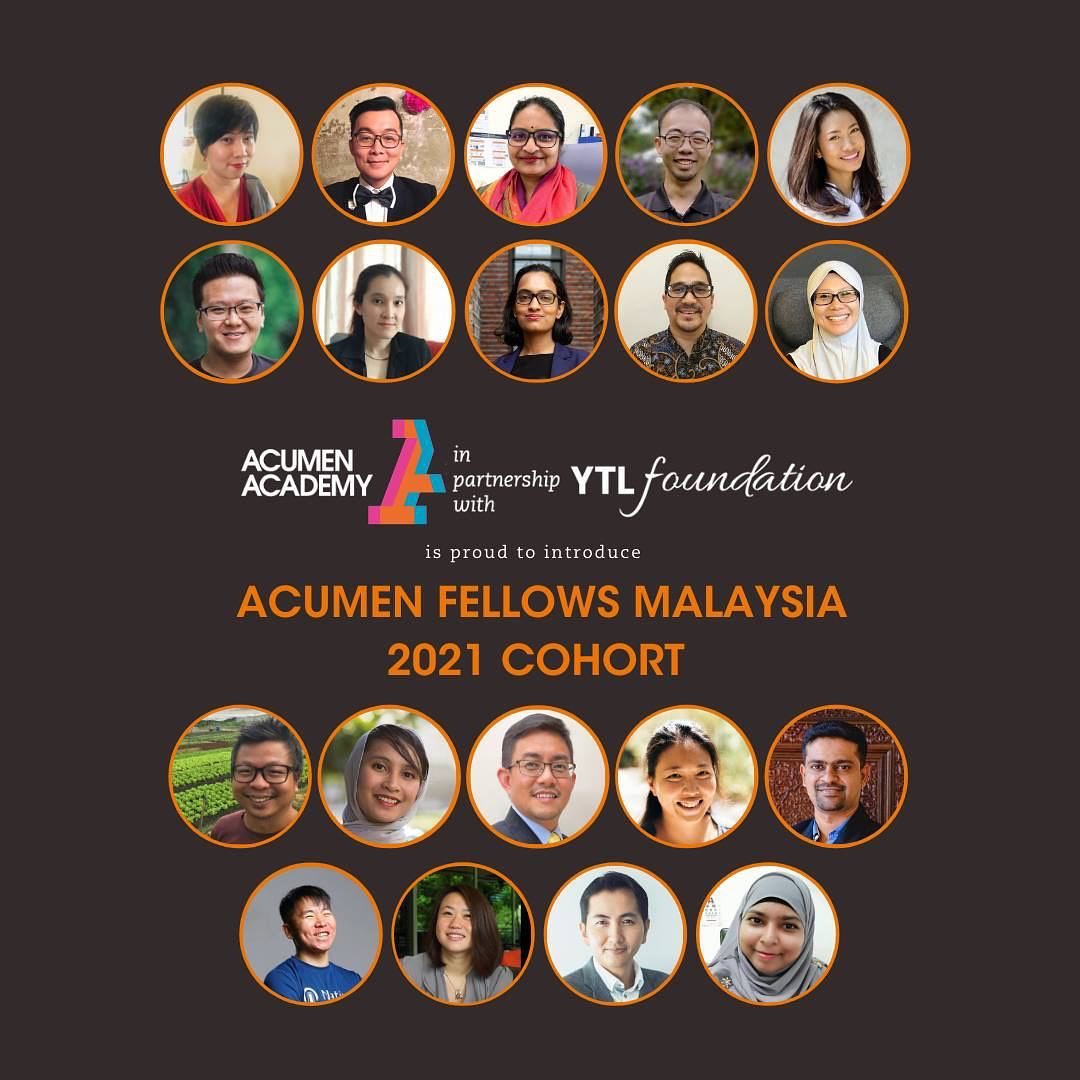 Alhamdullilah! Selected for the 2nd cohort of the Acumen Fellows! From the time I applied in August to the Selection Conference in December, the application process has been a journey by itself. Excited to be part of a powerful and impactful cohort -- changemakers from various backgrounds.
From the time I've heard Acumen Academy (part of the global investment fund Acumen) set up shop in Malaysia, I knew I wanted to be part of Acumen Academy Malaysia. I'm attracted to the idea of tackling poverty. Poverty is not only in the dollar and sense. Many people face poverty in opportunities -- especially in getting the tools, exposure and experience to level in life. I've been on a mission to do this. Now, I'm happy a group of superpowers to learn from and make ripples of changes for our community. I was interviewed by veteran writer Sholto Byrnes on my thoughts on ASEAN for UNRESERVED's inaugural magazine issue in March 2018. Hope you enjoy reading it as much as I did sharing my thoughts. Access the article here.
The 23-year old me would have been proud seeing this.
I didn't graduate from my undergraduate studies with stellar results. It was a mistake to have taken a double degree in political science and law when I loved the former but hated the latter. I even flunked one of the basic law courses. It was embarrassing. I eventually dropped the law degree but by then, it badly affected my total CGPA. I thought I'd never been able to do my postgraduate degree. I've always wanted to study at The London School of Economics and Political Science (LSE); I distinctively remember going on a walking tour many years ago with Dayang and the tour guide pointed us to the direction of LSE in Holborn, London. I thought it would only be a dream to get into LSE. But somehow someway, with the grace of God, I managed to get into London School of Economics and Political Science (LSE) for my Master's degree. And I had the chance to study my favourite subject: international relations. One of the goals I set out for myself when I arrived in London was to score a Distinction for my degree in LSE. I didn't know it was a tall order until I received the results for my first assignment. Despite all the hard work and sleepless nights, I attained only a Merit (<65). I thought it would have been next to impossible to get a Distinction (>70). But I kept that goal in sight to remind me. After all, what do I have to lose? I worked hard on every assignment but only managed to score High Merit (>65). It's bloody hard to score in LSE! For my dissertation, I spent 2 months at home -- dedicating many, many, many hours researching, writing, crying and editing my paper. I'm sure Dayang was annoyed with me. But Alhamdulillah, it paid off! Scored close to 80 for my dissertation and it brought me to just over 70! I learned a few things from this experience. First, don't let your past determine your future. Failure is not personal, pervasive or permanent. Me failing to academically perform during my bachelors didn't mean I couldn't do well for my Master's. Second, if you don't try, you won't know. If I hadn't applied for the Chevening Scholarship and LSE out of fear of failure, I wouldn't have known my full potential. Third, always take on big challenges with small baby steps. How do you eat a whale or an elephant? One bite at a time. How do you write a 15,000-word dissertation? By writing one page a day. I'm blessed to have had the support of Dayang in London and subsequently, my parents during the quarantine. Thanks for believing me when I couldn't do it for myself. You are the greatest! This is for the 23-year old me: you did it! Had the chance to speak at NeoWAY.org sessions organised by Wisdom Accelerator for Youth (WAY), a Swiss-based non profit organisation. Virtual WAY is a global event aimed at teenagers in the 13-17 age group along the lines of the original WisdomAccelerator.org format held in Davos during the World Economic Forum week. Guest speakers share stories about their past/present/future with a youth perspective in mind, with an accent on how it made them wiser over the years.
Speaking to teenager is not easy. I decided to keep it simple and share the 3R's: Read, Roam Around, and Reflect. More in the video, enjoy! |
Categories
All
Archives
May 2024
|


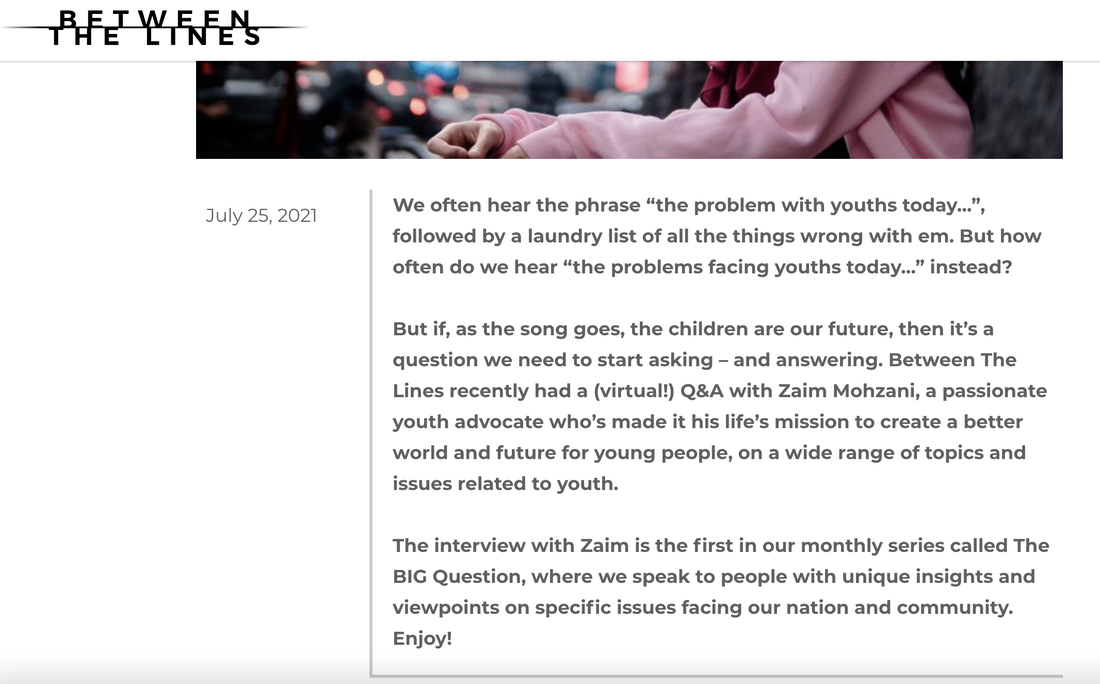
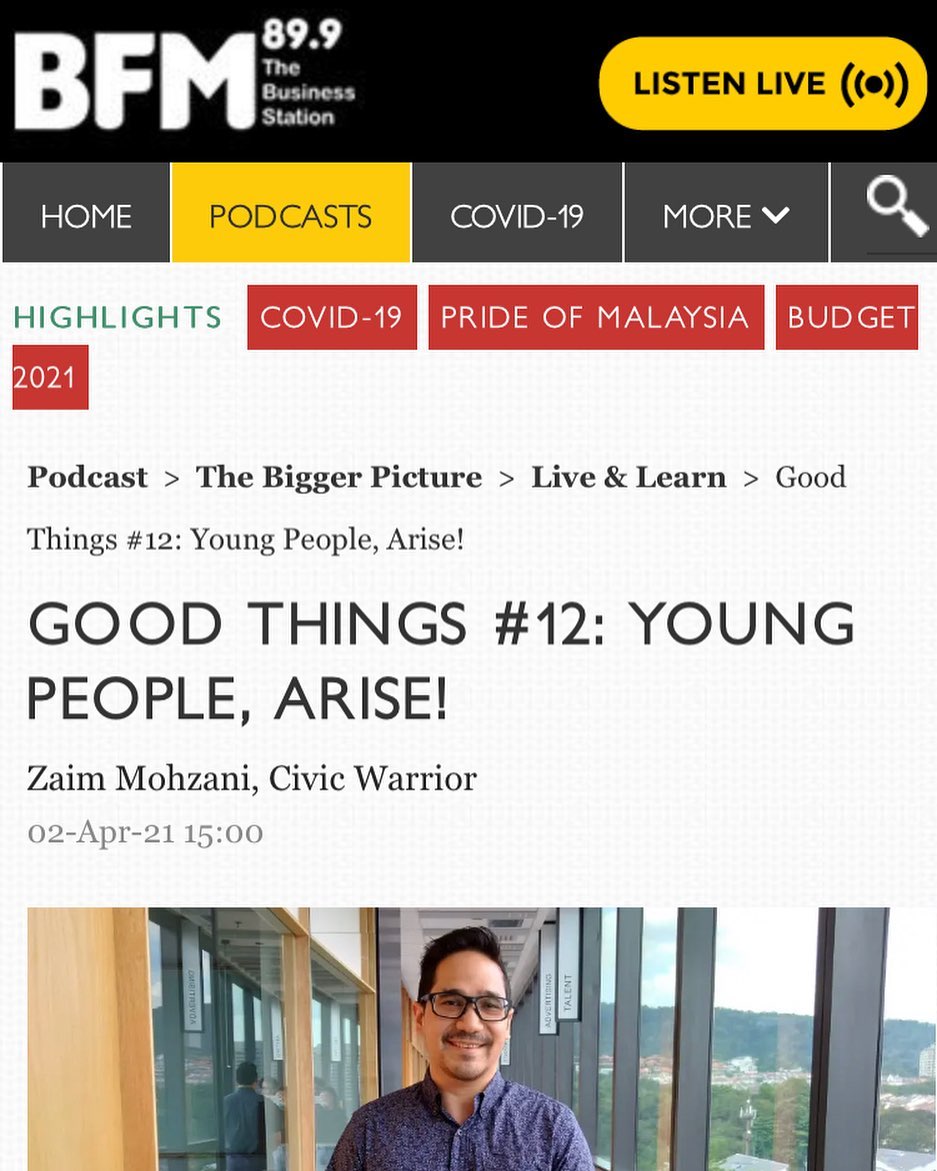
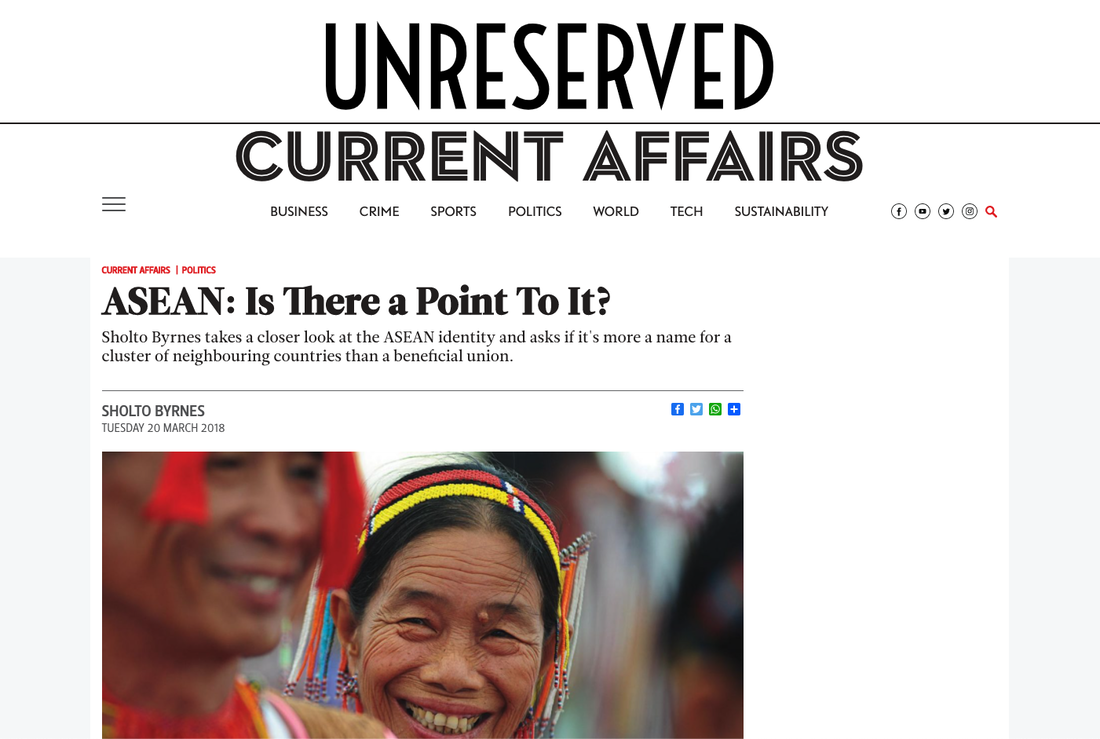
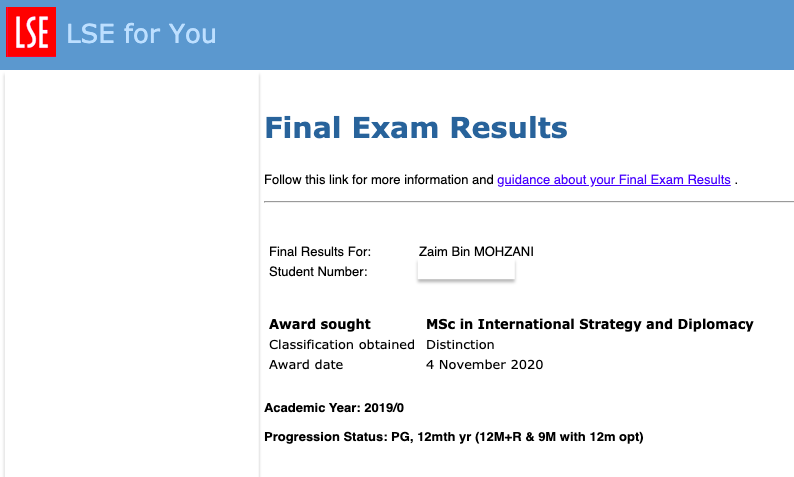
 RSS Feed
RSS Feed
